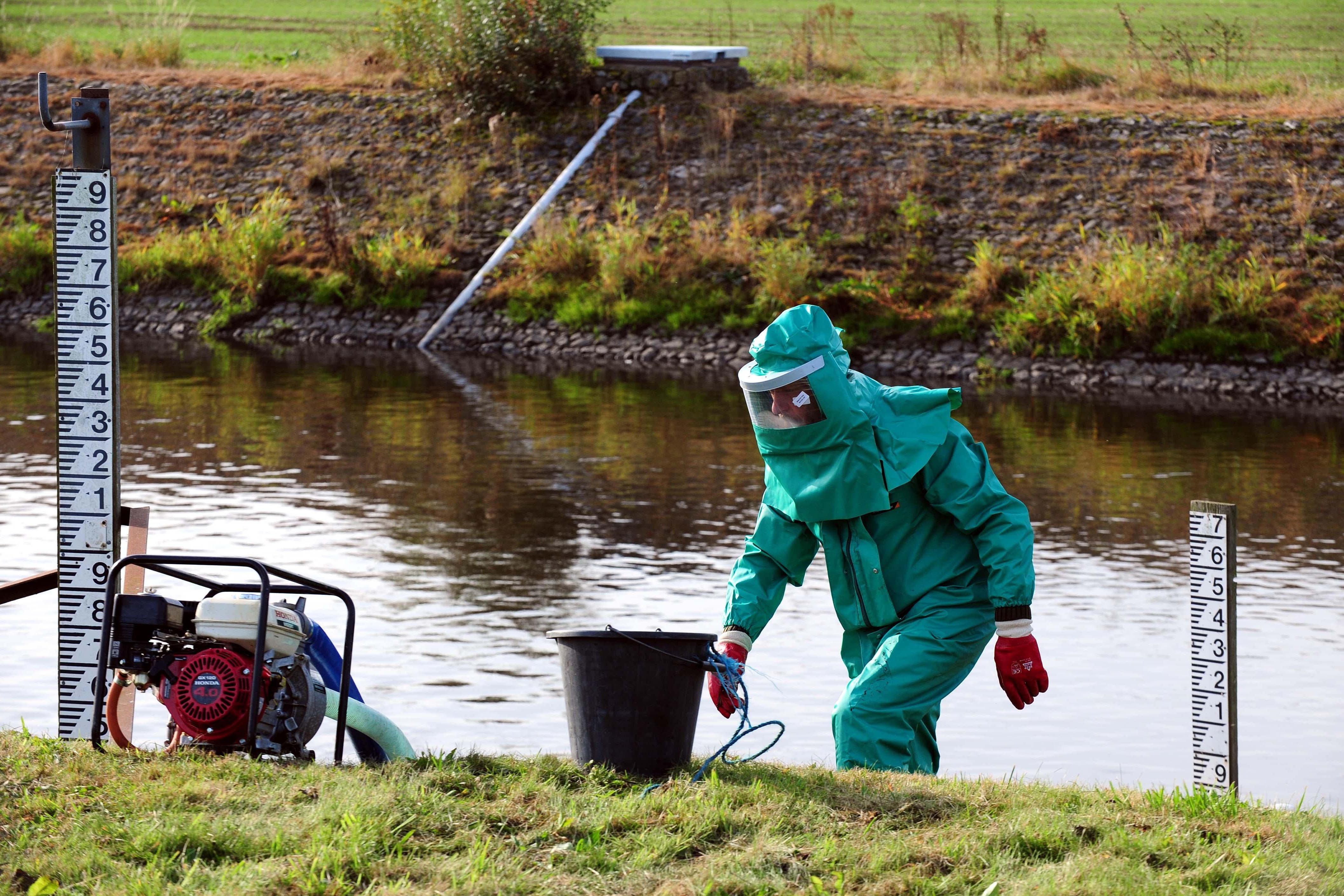Cash from water company fines to be used to improve environment, Government says
Under Government proposals, funds will be ringfenced to invest back into water quality improvement initiatives, according to Defra.

Your support helps us to tell the story
From reproductive rights to climate change to Big Tech, The Independent is on the ground when the story is developing. Whether it's investigating the financials of Elon Musk's pro-Trump PAC or producing our latest documentary, 'The A Word', which shines a light on the American women fighting for reproductive rights, we know how important it is to parse out the facts from the messaging.
At such a critical moment in US history, we need reporters on the ground. Your donation allows us to keep sending journalists to speak to both sides of the story.
The Independent is trusted by Americans across the entire political spectrum. And unlike many other quality news outlets, we choose not to lock Americans out of our reporting and analysis with paywalls. We believe quality journalism should be available to everyone, paid for by those who can afford it.
Your support makes all the difference.Ministers are planning to use money from fines handed to water companies – for polluting rivers and seas – to improve the natural environment, rather than giving the funds to the Treasury.
Under Government proposals, funds will be ringfenced to invest back into water quality improvement initiatives, according to the Department for Environment, Food and Rural Affairs (Defra).
Defra said these could include the creation of wetlands, re-vegetating river banks and reconnecting meanders to the main channel of rivers.
At present, money from fines imposed by Ofwat and those arising from Environment Agency prosecutions is returned to the Treasury.
There has been growing public outrage in recent months at the volume of raw or partially treated sewage pumped into the UK’s rivers and coastal waters.
These fines hold rule-breaking companies to account and mean record investment in our waterways
Water firms are being criticised for not investing money back into the UK’s outdated water infrastructure, with mounting pressure on ministers to intervene.
The Government came under fire in October after Environment Secretary Therese Coffey admitted the deadline to publish landmark legally binding targets to clean up Britain’s waters would be missed.
Ms Coffey said she was “disappointed” by the delay in producing the targets – which are obligations under the post-Brexit Environment Act – but was “working at pace on building on the work of my predecessors”.
Defra said further details of its plans to re-allocate funds from fines imposed on water companies will follow next year.
Refunnelling record levels of fines to improve nature – the ultimate victim of poor water quality – sends a clear signal that the polluter should pay to clean up the mess
Water minister Rebecca Pow said: “Water company fines reached a record level last year, and moving forward these plans will significantly increase funding that will be used to recover, protect and enhance our natural environment.”
Chancellor Jeremy Hunt said: “These fines hold rule-breaking companies to account and mean record investment in our waterways.
“It comes on top of our requirement for water companies to invest in the natural environment – raising the largest ever environmental infrastructure investment of £56 billion over 25 years.”
Philip Dunne, chairman of the Commons Environmental Audit Committee, said the plans will “go a long way to developing nature-based solutions”.
“Refunnelling record levels of fines to improve nature – the ultimate victim of poor water quality – sends a clear signal that the polluter should pay to clean up the mess.”
But the Liberal Democrats accused the Government of a “pathetic” attempt to save face.
The party’s environment spokesperson Tim Farron said: “The fines aren’t working. Every day these polluting firms poison our rivers whilst they rake in multibillion-pound profits. The whole thing stinks.
“These Conservative ministers voted against banning sewage being dumped into rivers and beaches. They must U-turn before more harm is done. They should impose a Sewage Tax and stop letting water firms profit off destroying the environment.”